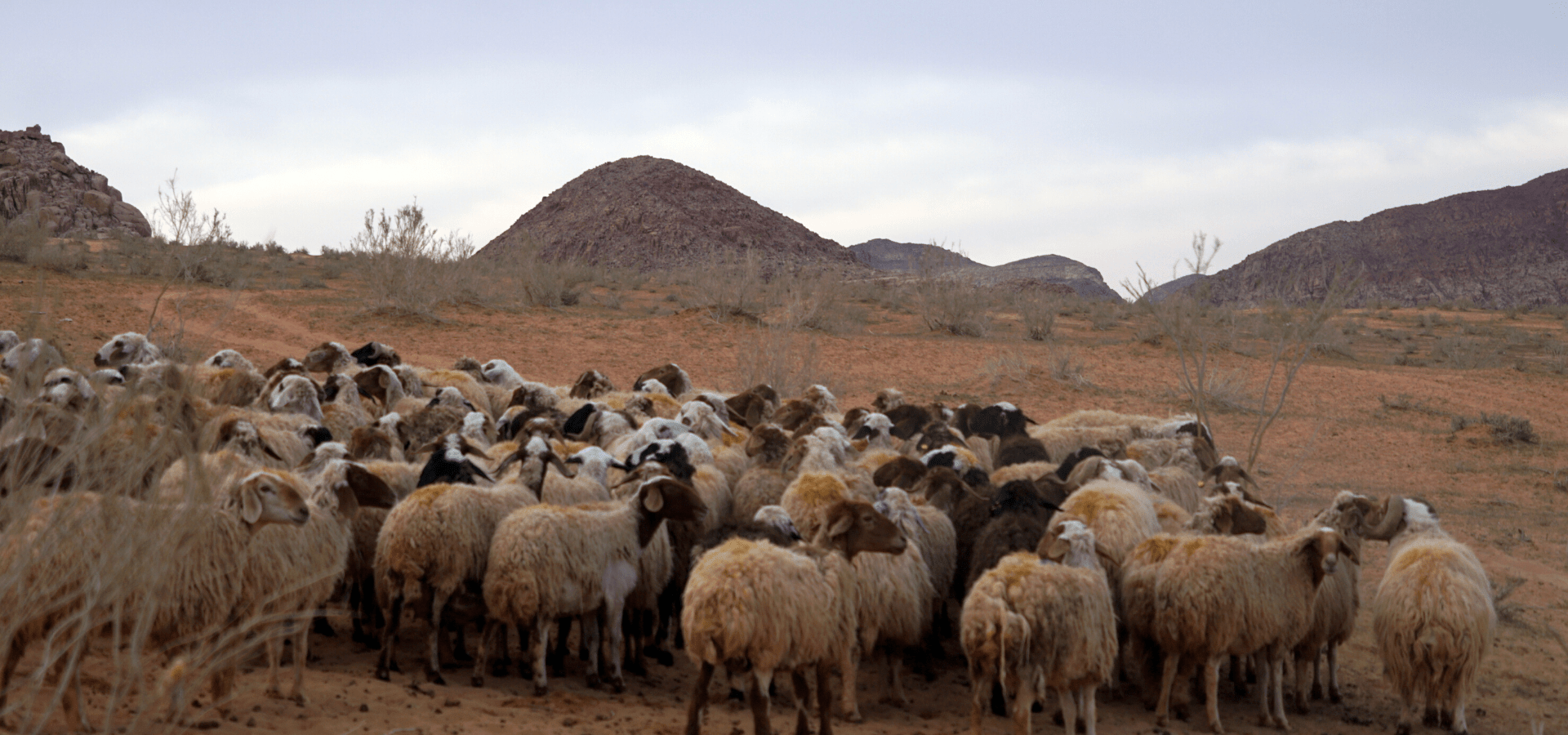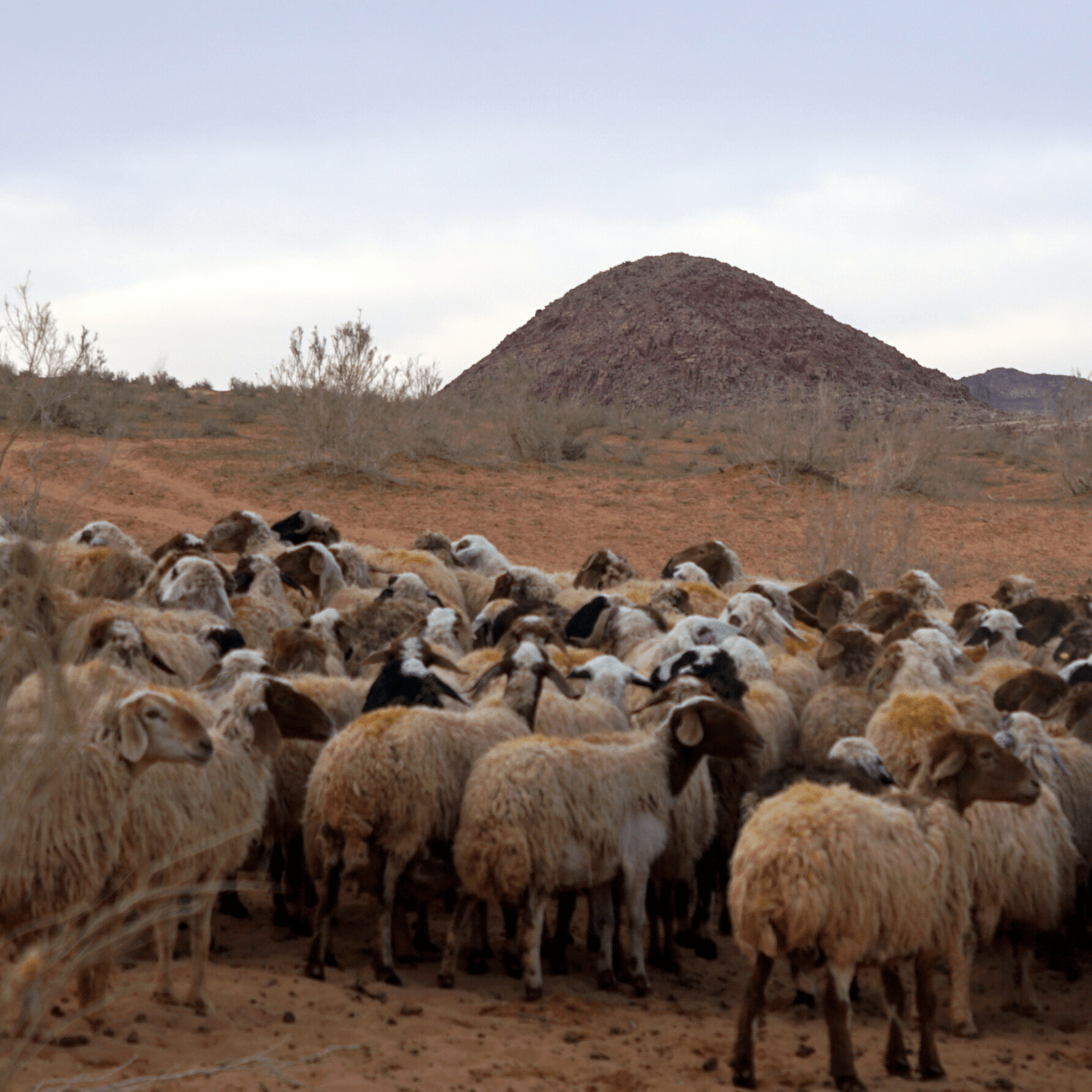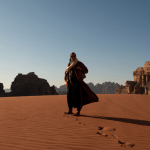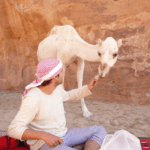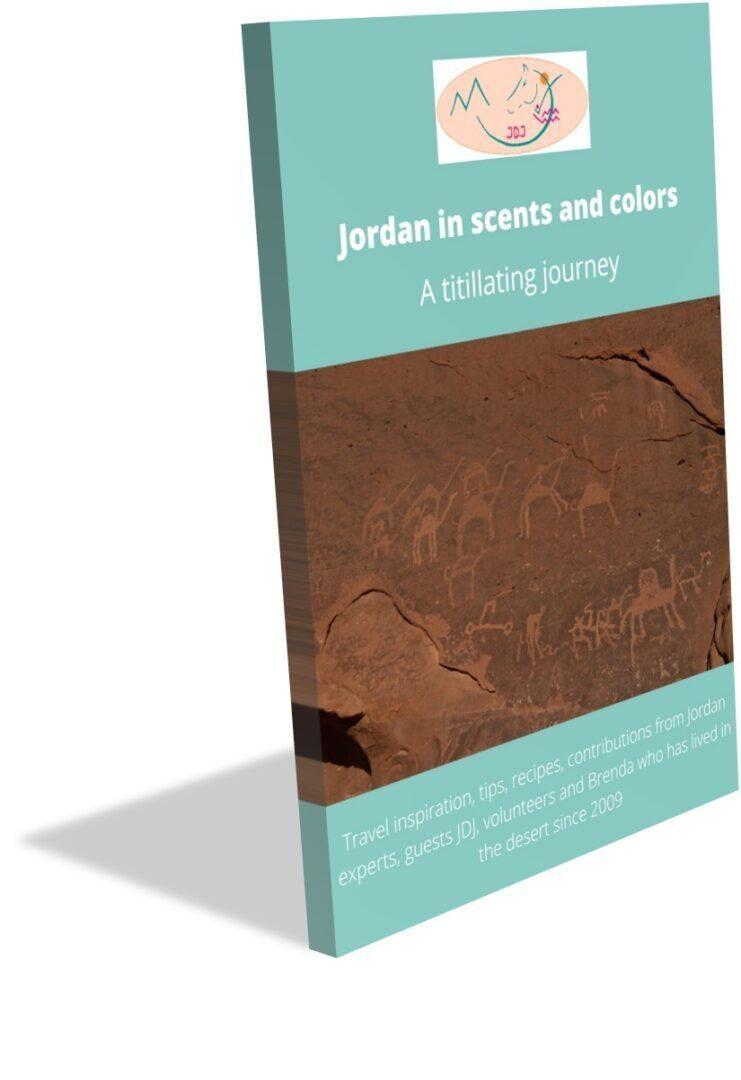Visit to my Bedouin family during the Feast of Sacrifice
Tomorrow is the Feast of Sacrifice. I am restless and hear several sheep bleating. Just a short night before it’s over, then they’ll be gone after the ritual slaughter. This is the point I struggle with the most as an animal lover.
Feast of Sacrifice
I myself am a Muslim and participate in the party. The festival of sacrifice usually falls about seventy days after the last day of Ramadan, on the tenth day of the month of Hajj. Muslims from all over the world complete their Hajj, the pilgrimage to Mecca and Medina, by slaughtering a sheep. Every Muslim who has the financial means to slaughter a sheep participates in the festival of sacrifice at home. But also those who have no possibilities to slaughter a sheep, party.
Sacrifice of the son of the prophet Abraham
The Feast of Sacrifice commemorates that the prophet Abraham obeyed God’s command to sacrifice his son. In the Bible this is Isaac, the son of his wife Sarah. The event is described in the Quran but the name of the son is not mentioned. It is believed to be Ishmael, the eldest son of his wife’s maidservant, Hajar. At the crucial moment, when Abraham wants to slit his son’s throat, he is stopped. The blade does not cut. God sends an angel who tells Abraham that a ram may be sacrificed instead of his son.
Sheep slaughtered
Muslims show by slaughtering a sheep that they are willing to sacrifice everything for God. It is the most important festival in Islam that usually lasts three days. Everyone is dressed in new clothes and children are often given money, just like the sisters of the brothers. Donations are made to the poor. Once the sheep is slaughtered, the whole family eats it. The rest is distributed to the poor. Some use a distribution key. A third of the meat for personal use, a third for the rest of the family and a third for the poor. Because I am seen as a member of my Bedouin family, I also return home with two bags of meat.
Visiting Bedouin family
The Feast of Sacrifice starts early after morning prayers with the men praying in the mosque with a sermon from the Imam. Women pray at home. The sheep is slaughtered and prepared to eat immediately. At six o’clock I get up to find transport that will take me to the village of my Bedouin family, about 35 km away. There are no buses in our village on public holidays. Otherwise only once a day, just before seven in the morning. Usually the journey is in stages, so this time too. I walk to the main street in the hope that a car will stop to take me further…
Hitchhiking in Desert
The first bus stops after about ten minutes and takes me a few kilometers further into the desert. He continues his way into the desert where he has guests waiting for him. It is very common to choose this form of transport. After waiting five minutes, a car with two men stops who can drop me off in the village I want to go to, Quwayra. The village consists almost exclusively of members of the Bedouin family that I belong to and work with. My Arabic is sufficient to explain who I work with, what I do and to which (sub)family I belong. As soon as you belong to a family you are classified, you fit into a box and you have an identity. It is the village in the desert where I live. Everybody knows each other.
Grandpa recognizes me immediately
When I knock on the door and open it, Grandpa, who is about a hundred years old, is sitting quite upright. Although his mind still works fine, he does not immediately recognize all of his extensive progeny. But now a smile immediately appears on his face. I am welcomed with the words: ‘Which woman comes in there? Ah welcome Brenda.” He sits up a little straighter and holds my hand for a few minutes. With the usual exchange about how I and him are doing, he congratulates me on the Eid al Adha, the Feast of Sacrifice.
Joining the “breakfast”
After shaking hands with the other female relatives, kissing everyone and exchanging best wishes for the sacrifice, I take a seat next to Grandpa. After a few minutes, the dish with meat, liver and other entrails comes in with fresh bread. We all sit on the floor around the bowl to eat breakfast. Grandpa keeps telling us to eat well. In the meantime, he enjoys the longest of the abundant meal. I help him wash his hands like I always did when I was his caregiver and lived with him. He falls into a deep sleep while the women continue to chat for a while.
Hisha
I refill his meds and roll his herbal cigarettes. Many older Bedouins smoke these herbs called hisha. This are not narcotics but quite strong. His hands can no longer handle the fine work of rolling. He likes my style, which I copied from him, the best. His daughter makes the mixture, which is purchased as whole plants. For this she uses different sieves with increasingly finer mesh sizes.
Deceased youngest son
Grandpa is asleep and the visitors have left. I wash and clear the dishes and, after visiting the family of his deceased youngest son, I go to the house of the eldest son. I also lived in the home of the youngest son for a while. His wife and eight children are very dear to me. Their father was my best friend in Jordan. He helped me on my way and taught me to (survive) live in the desert. I give them the goodies I brought and all the children greet me with a warm hug.
Welling tears
With the eldest son, who is now a grandfather to an expanding family of grandchildren, it is nice to delve into the family history. He is a Doctor of History and Arabic Language at the University of Aqaba. I can discuss endlessly with him about the region and the past of his family. It is a pity that I cannot (yet) read his books, which he writes in Arabic. He tells me that he brought three sheep to slaughter. He had been with his father to tell him for whom he had bought the sheep. The sheep are often sacrificed in the name of a deceased relative. One for his late mother, one for his youngest brother. I can’t remember who the last one was because my eyes filled with tears for those lovely people. I still heard that Grandpa’s tears of joy and sorrow also welled up.
Back home
After the delicious Bukhari meal, with of course a lot of meat, where also his youngest newly married daughter was included, her husband, a sister and a number of brothers with their family, his son took me home…
This blog is posted on the website of “De wereldwijven” (The world’s wives)
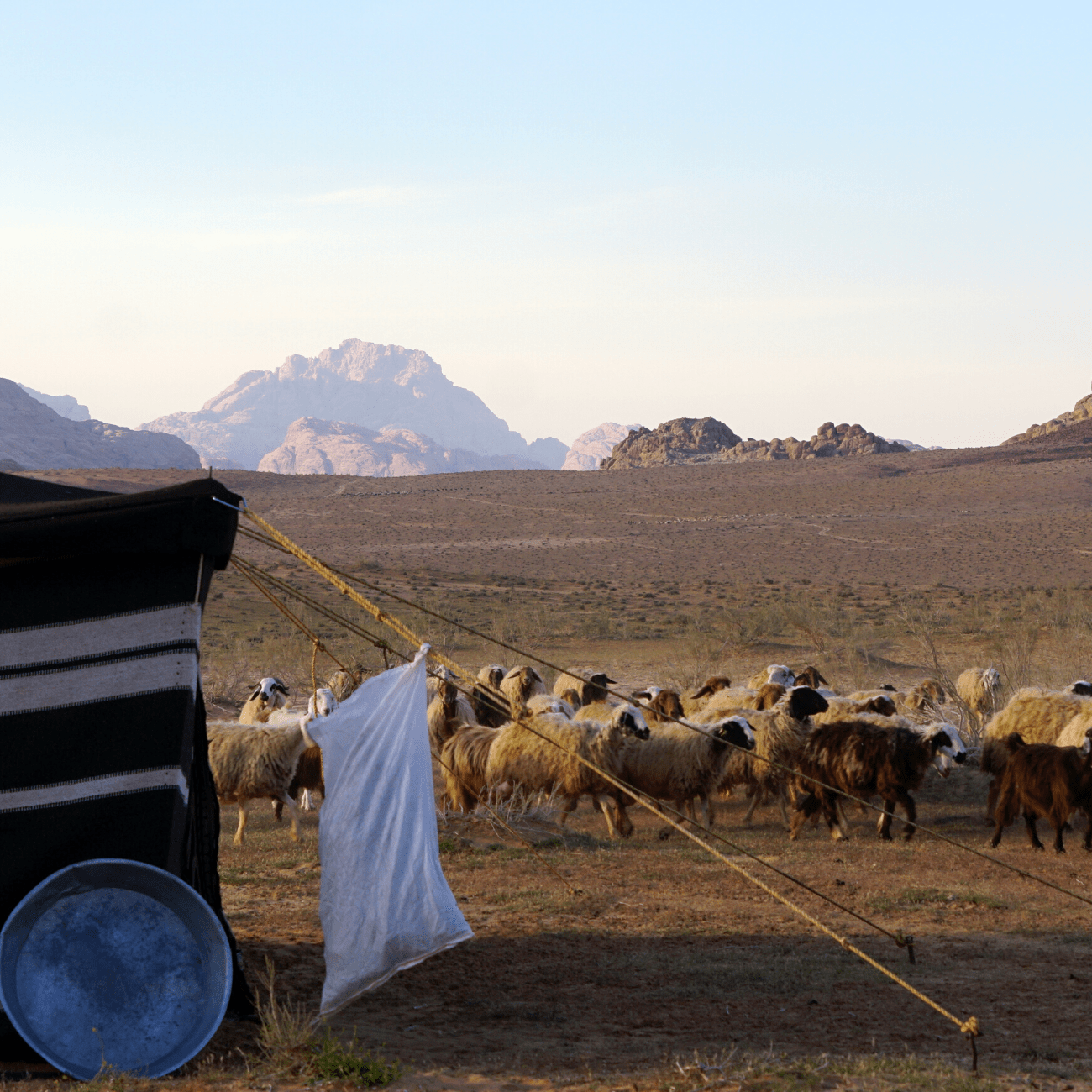
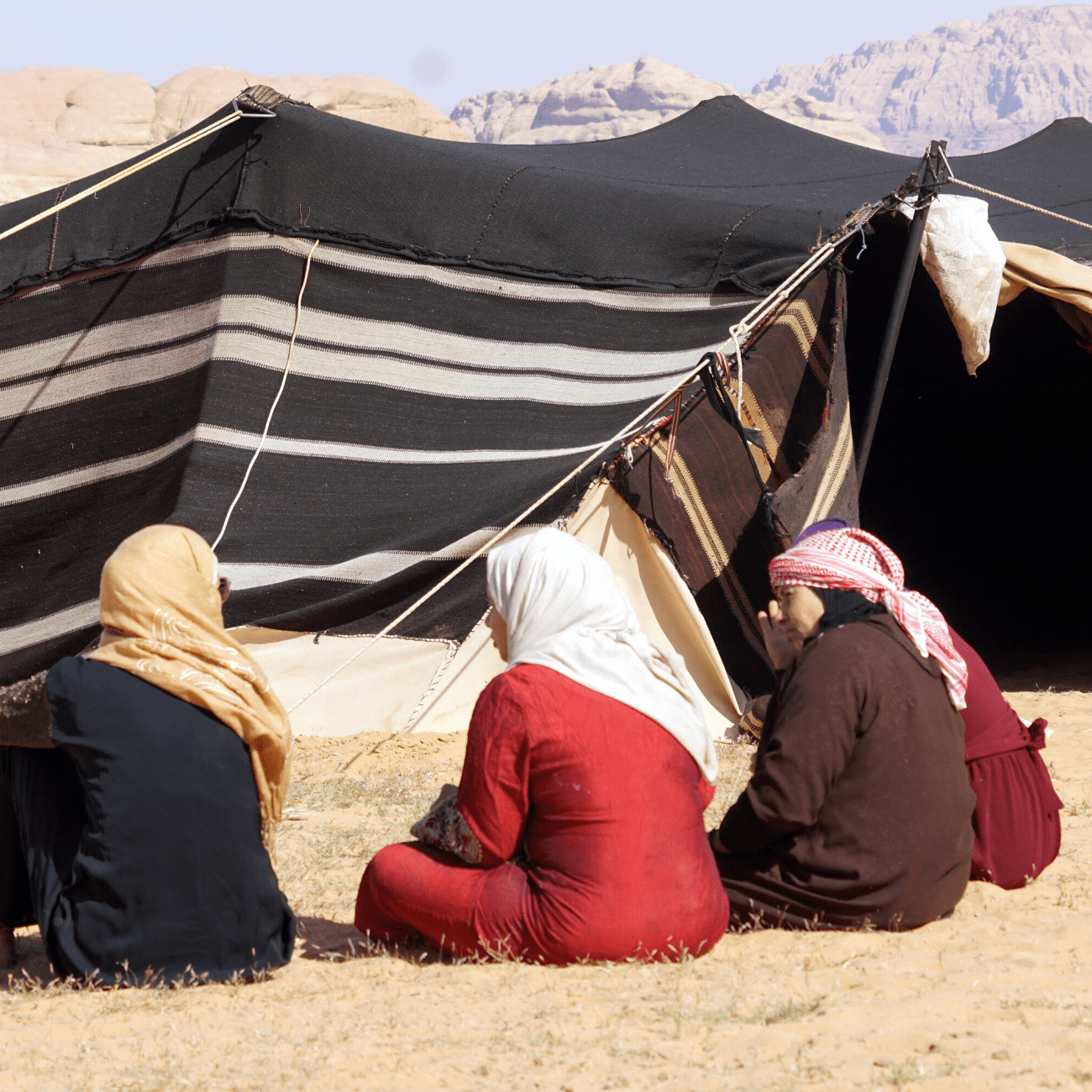
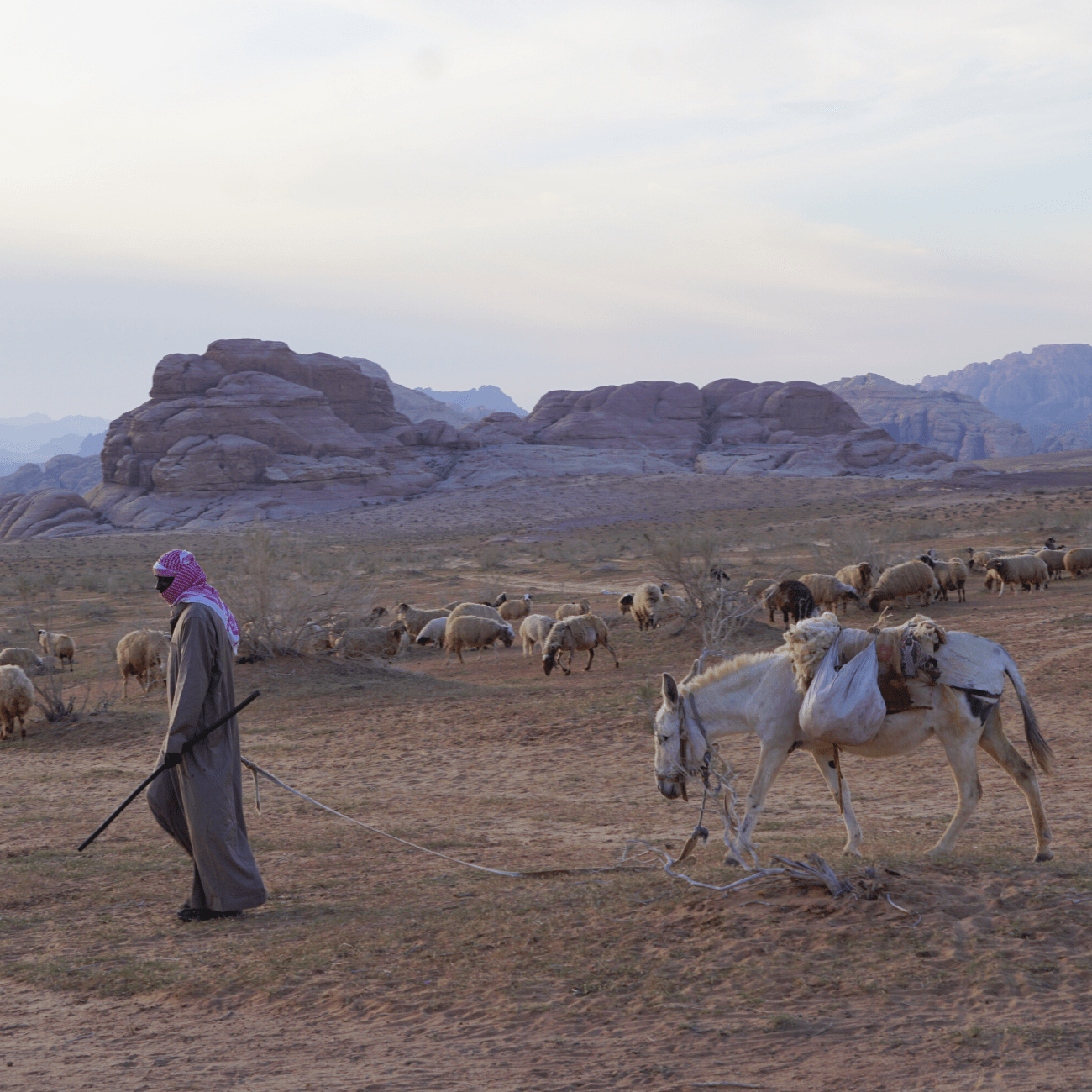
With love from the desert,
Brenda van den Brink
Marhaba (welcome) from Jordan. Brenda has been in an intimate relationship with the country of Jordan since 2003. In love with the desert, passionate about the Arabian desert horses, she left for Jordan in 2009 to live as a Bedouin in her beloved desert. The first 9 months in a tent, in the middle of nowhere. Her son and the horses around her. After a number of nomadic wanderings in different places, including Petra, she settled in the beautiful Wadi Rum desert. Together with colleague and “brother” Abdullah Alzwaydeh, she founded Jordan Desert Journeys. A real “family” business to let guests experience an authentic Bedouin life experience in the desert. An unforgettable journey, often together with the horses, camels, adopted stray dogs and local employees.

